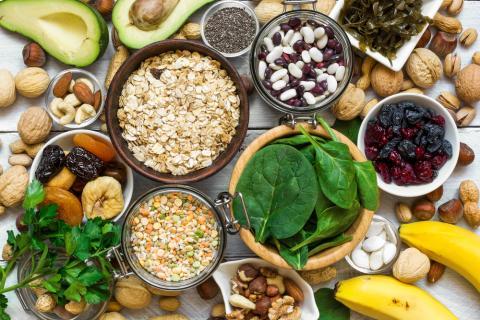
In the wellness community, we often expound the benefits of moving and exercising more, and with good reason. Exercise is a crucial part of achieving wellness and health, and it aids in longevity. However, it is also true that many people experience difficulty or discomfort when they move. This can be attributable to a variety of things: beginning an exercise regime after a longtime of being too sedentary, aging, arthritis, or too much inflammation in the body. While eating more of the right foods is crucial in helping the body heal and reduce inflammation, there are supplements that can help some people feel more relief faster.
1. Magnesium
Magnesium deficiency is unfortunately very common. Magnesium is a crucial mineral that aids in hundreds of the body’s functions. One of the main roles it plays in the body is that of muscle health and preventing muscle spasms. Magnesium is also very calming and aids in sleep quality.
There are a variety of magnesium supplements available but I prefer the powdered drink mix form right before bed. You can also try epsom salt baths in tandem for even more magnesium muscle magic. If you prefer a food based approach, consume more of these magnesium-rich foods: almonds, tofu, spinach, dark chocolate, cashews, pumpkin seeds, sesame seeds, and avocado.
2. Glutathione
Glutathione is arguably one of the most powerful antioxidants known to man. The coolest part? You already make it in your body. The downside: often people do not make enough. This is of course truer as we age and our glutathione production declines. Like magnesium, glutathione is one of those supplements that improves many areas of our health—the biggest one of these is its ability to reduce oxidative stress. Oxidative stress leads to chronic conditions including Rheumatoid Arthritis. Glutathione works best when taken with vitamin C and a NAC supplement. These help it to be absorbed by the body and aid in its efficacy. Glutathione is also found in food. So, should you prefer a food-based approach, eat more of these goodies: cruciferous vegetables, onions, garlic, and whey protein.
3. Curcumin
The active compound found in turmeric is a powerful anti-inflammatory and is known for aiding joint health. Many people report a host of benefits when taking a daily curcumin supplement. If you struggle with joint pain and prefer a food-based approach, be sure to cook with more turmeric (try jamu juice, golden milk, or carrot soup) and when you do, use a healthy amount of black pepper since black pepper aids in the absorption of the curcumin found in turmeric.
4. CBD
The abbreviated version of “Cannabidiol” is another consideration to try for its many potential health benefits. CBD has exploded in popularity and imparts many of the known health benefits of marijuana without the THC effects (such as getting stoned or hungry). CBD is still being heavily researched for its abilities and limitations; however, many people report pain relief as being one of the most common reasons for using it. If you prefer a food-based version of CBD, there are many edible forms available: oils, chocolate, baked goods, and more.
5. Glucosamine Chondroitin
Glucosamine is another supplement that is already found in the human body. In fact, glucosamine is found in the cartilage of our joints. Like glutathione, many people who suffer from chronic joint pain or arthritis report relief when taking an additional supplement form as it aids in the synthesis of fats and proteins that keep joints cushioned and comfortable. Glucosamine chondroitin also has other health benefits such as gut health, mood health, and TMJ pain relief. If you prefer a food-based approach, try incorporating bone broth into your diet.
Exercise is crucial to both our mental and physical health—so much so that if pain or discomfort are preventing one from regularly exercising it is worth taking measures to remedy it. Of course, it is important to remember that some pain and discomfort is normal (like muscle soreness) when starting up a new exercise regime, but consistent ongoing discomfort with or without exercise is not. Ensuring one is eating a diet rich in whole foods can be a great starting point, but if you find you need something more, supplementation may be your best bet to get you out and moving.








